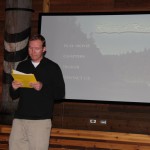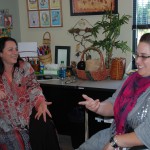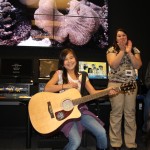Rapid HIV testing during the day; evening memorial walk & program
Press Release, Kristin Kinnamon, Communications Manager
SNOHOMISH COUNTY, Wash. – The public is welcome to free events in downtown Everett to commemorate World AIDS Day 2012 on Friday, Nov. 30. A collaboration of local agencies is sponsoring a resource fair, HIV testing, a memorial walk, and an evening program that includes refreshments, artwork and music. All activities take place at the Snohomish Health District, 3020 Rucker Ave., Everett.
The World AIDS Day events will commemorate those lost to AIDS, support those living with the disease, reinforce the need to combat stigma, discrimination and intolerance, and underscore the need for routine HIV screening.
This year’s special emphasis is to raise awareness that people living with HIV are also at risk for tuberculosis. While 1/3 of the world’s population is infected with the tuberculosis bacterium, most people never get sick. However, TB is the leading killer among people living with HIV. In 2011, 1.4 million people in the world died from TB, and of those, 430,000 of them were HIV positive.
“The unfounded fears surrounding tuberculosis and people with TB mirrors the fears people have had about AIDS,” said Snohomish Health District HIV/AIDS program manager Brenda Newell. “Neither disease is caught by casual contact, and both are treatable once detected.”
An estimated one in five Americans infected with HIV is unaware of it. According to the Washington State Department of Health, 707 people in Snohomish County are currently known to be living with HIV. Screening for tuberculosis is recommended for HIV-positive people.
Nov. 30 Schedule of Events
· 9 am – 4 pm: Free or low-cost confidential Rapid HIV Testing
· noon – 6 pm: Community health resource tables
· 5 – 6:30 pm: Light refreshments catered by Ross Day
· 5:30 pm: Walk to Everett’s AIDS Memorial at 3021 Wetmore Ave.
· 6:30 pm: World AIDS Day Program
The evening program includes remarks by Dr. Gary Goldbaum, Snohomish Health District director and health officer, Teresa Rugg, Snohomish County RESULTS group leader, Patricia Yepassis-Zembrou, Health District epidemiologist, and Dennis Worsham, regional health officer for Public Health Seattle-King County.
The evening program also features music by local musicians Terri Anson and Savannah Woods, and concludes with a candlelight vigil. The commemoration is free and open to the public.
Local sponsors include Snohomish Health District, Evergreen AIDS Foundation, Snohomish County Gay Men’s Task Force, AIDS Project Snohomish County, RESULTS Educational Fund, TB Photovoice, and the AIDS Outreach Project.
Evergreen AIDS Foundation is one of the oldest AIDS service organizations in the country – established in 1985. EAF provides community outreach, counseling and testing, emergency food and housing assistance, volunteer services and support for persons with HIV disease and their families. It serves over 600 clients across six counties, including Snohomish County.
RESULTS Educational Fund was founded in 1980. Their mission is to create the public and political will to end poverty through improved policies and funding for health, education, and economic opportunity.
Established in 1959, the Snohomish Health District works for a safer and healthier community through disease prevention, health promotion, and protection from environmental threats. Call 425.339.5298 for information about Snohomish Health District’s HIV/AIDS education and outreach programs and services, or visit our Web site: www.snohd.org.
Resources:
· Washington State Department of Health
o http://www.doh.wa.gov/YouandYourFamily/IllnessandDisease/HIVAIDS
o http://www.doh.wa.gov/YouandYourFamily/IllnessandDisease/Tuberculosis
· National Prevention Information Network
· United Nations HIV/AIDS Program
· AIDS Project Snohomish County
· Snohomish County Gay Men’s Task Force
· TB Photovoice
· AIDS Outreach Project
· Evergreen AIDS Foundation













